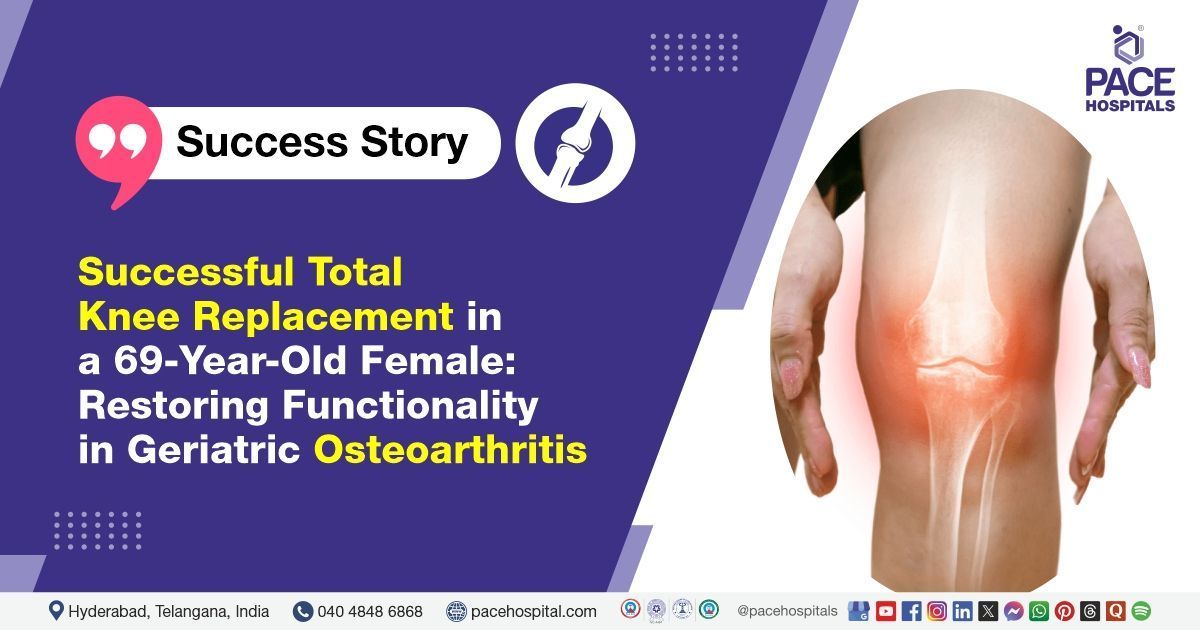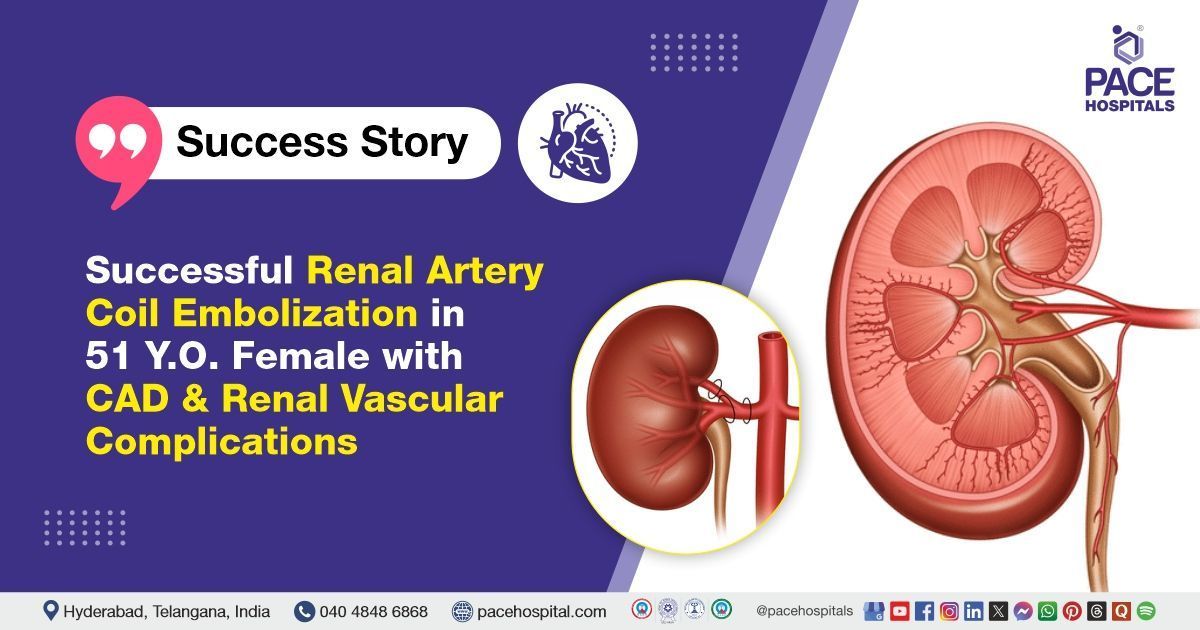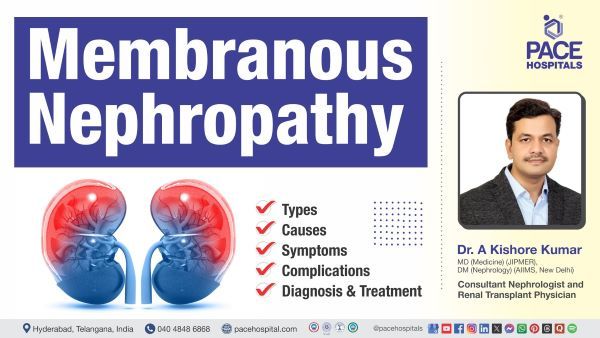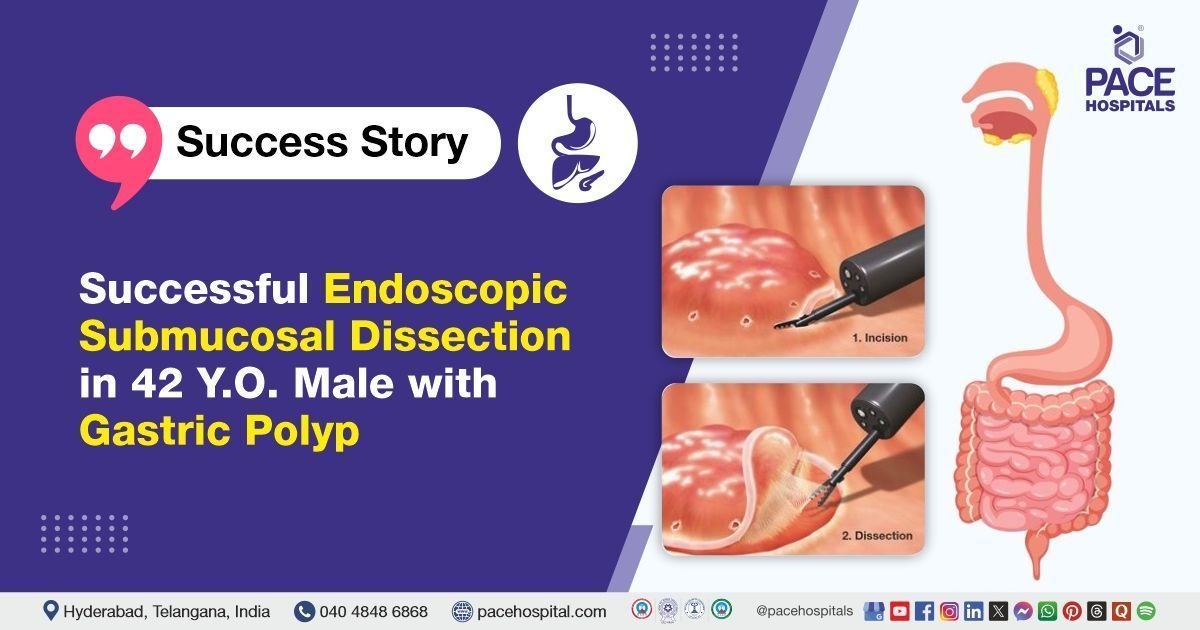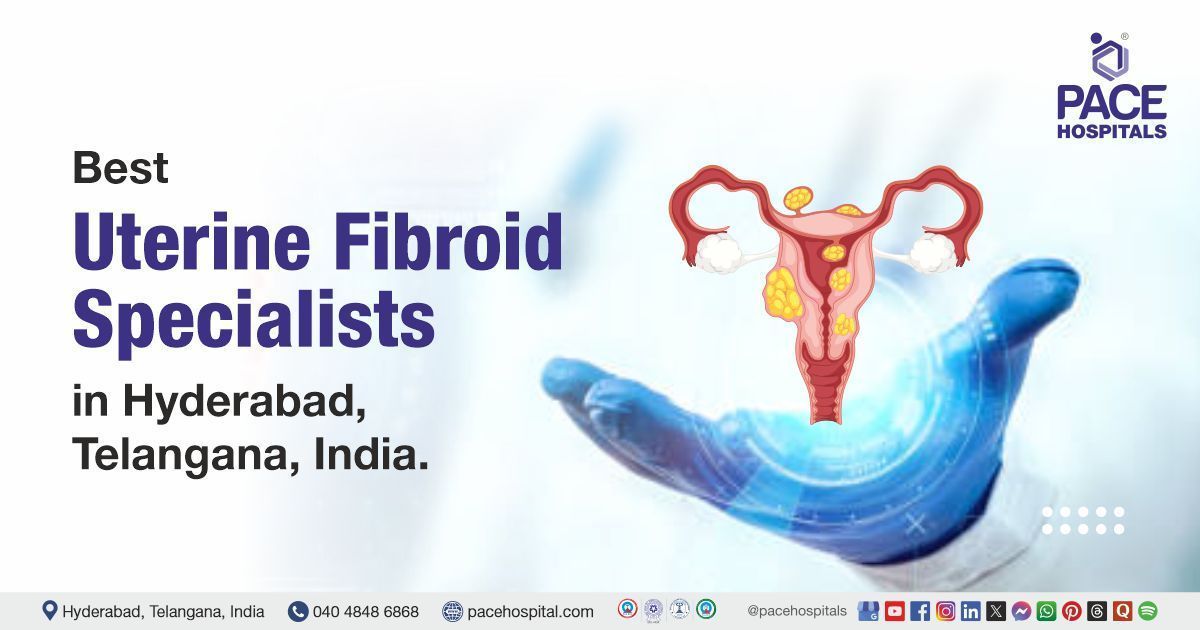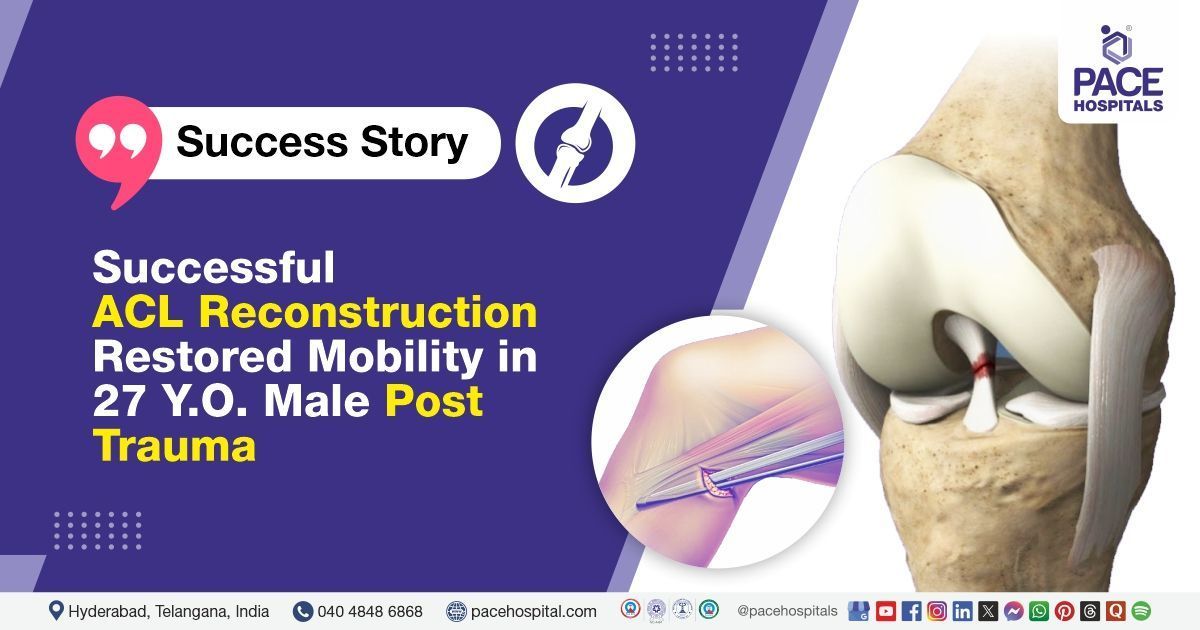Successful Total Knee Replacement in a 69-Year-Old Woman: Restoring Mobility in Geriatric Osteoarthritis
PACE Hospitals’ orthopaedics team successfully performed a left sided total knee replacement surgery for a 69-year-old female suffering from complaints of pain and swelling in the left knee for the past few months.
Chief Complaints
A 69-year-old female patient presented to the Orthopaedics Department at
PACE Hospitals, Hyderabad, with chief complaints of pain and swelling in the left knee for the past few months, along with difficulty performing daily activities due to the pain.
Medical History
Delving further, it was understood that the patient was a known case of hypertension and had been on irregular medications, which led to her admission to PACE Hospitals for additional care and management. There was no history of significant abdominal surgery or chronic illness. No significant family medical history was reported.
Diagnosis
Upon being admitted to PACE Hospitals and understanding the history and physical examination, the patient was subjected to necessary investigations. Based on the findings, the diagnosis of
osteoarthritis of the left knee was established, which is causing joint effusion, tenderness along the medial joint line, and a 15-degree flexion deformity (FFD). The range of motion in the right knee was also restricted and painful.
Medical Decision Making
Given the patient’s symptoms of pain, swelling, and difficulty in performing daily tasks, along with a diagnosis of osteoarthritis in the left knee, surgical intervention was deemed necessary. After a detailed discussion with the patient's guardians and obtaining informed consent, Dr. Raghuram, Orthopaedic Consultant, Trauma, Shoulder and Knee Arthroscopic Surgeon, and Hip and Knee Joint Replacement Specialist, along with general physician, Dr. Mounika Jetti, decided to proceed with left sided Total Knee Replacement (TKR) surgery.
This decision was based on the need for long-term pain relief, improved joint function, and enhanced quality of life. The patient’s hypertension was well-managed during preoperative preparation.
Surgical Procedure
The patient underwent left-sided Total Knee Replacement (TKR) on her left knee. The procedure was carried out under general anaesthesia.
Intraoperative Findings
Intraoperative evaluation indicated significant osteoarthritis in the left knee joint, as well as joint abnormalities consistent with the patient's clinical presentation. The total knee replacement was successfully performed without any intraoperative complications.
Postoperative Care
After surgery, the patient's vital signs and oxygen levels were continuously monitored in the hospital. Throughout her stay, she received necessary antibiotics, analgesics, and supportive medications.
On the third postoperative day, the patient's oxygen saturation (SPO2) dropped to 85%, although there was no evidence of dyspnoea (breathlessness). The high D-dimer values prompted a CT pulmonary angiography, which revealed no abnormalities.
Oxygen support and antihypertensive medications were continued, and her oxygen saturation increased to 95%.
Wound dressings were applied, and the surgical site showed no signs of infection.
Discharge Notes
The patient showed a satisfactory postoperative recovery and was hemodynamically stable at discharge. She was advised to take necessary medications and physiotherapy, including walking training and staircase training for 1 week. She was also advised for wound care, including regular cleaning and monitoring for signs of infection.
Emergency Care
The patient’s guardians were instructed to visit the emergency department of PACE Hospitals, Hyderabad, in case of any symptoms such as fever, worsening knee pain, swelling, or any abnormal drainage from the surgical site.
Dietary Recommendations
The patient was advised to have a normal diet. She was also advised to focus on a balanced diet with adequate hydration and nutrition to promote healing.
Review and Follow-up Notes
The patient was scheduled for a follow-up visit after 1 week in the Orthopaedics OPD at PACE Hospitals, Hyderabad, to monitor the surgical site and change the dressings.
Role of Total Knee Replacement (TKR) in Osteoarthritis Treatment
Total Knee Replacement (TKR) is a highly effective surgical option for patients with severe knee osteoarthritis, particularly when conservative therapies such as medicines, physical therapy, and injections have proven ineffective. Osteoarthritis causes the degradation of cartilage in the knee, resulting in pain, stiffness, swelling, and reduced movement. TKR helps to restore joint function, relieve pain, and enhance overall quality of life. By replacing the injured joint with a prosthesis, TKR enables patients to resume daily activities such as walking, climbing stairs, and even low-impact physical exercises.
This surgery is very useful for individuals who have severe joint degeneration and suffer from chronic pain and functional impairment. Although TKR is generally safe and effective, it involves careful consideration of the patient's age, overall health, and any comorbidities to ensure the best potential results.
Share on
Request an appointment
Fill in the appointment form or call us instantly to book a confirmed appointment with our super specialist at 04048486868

